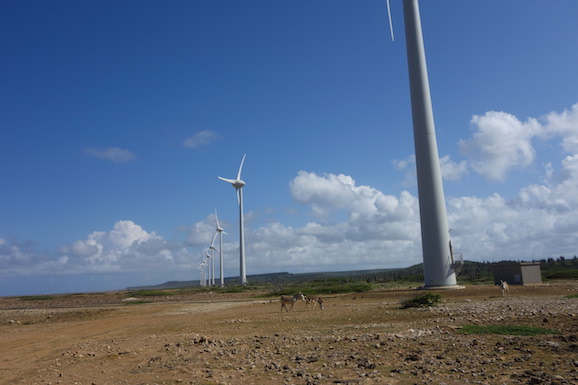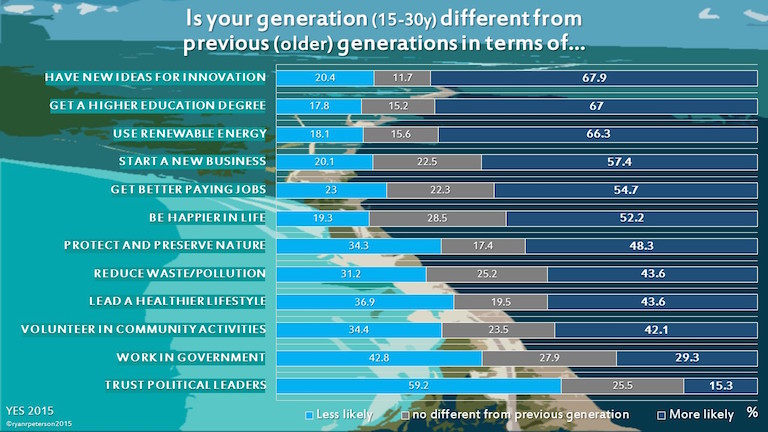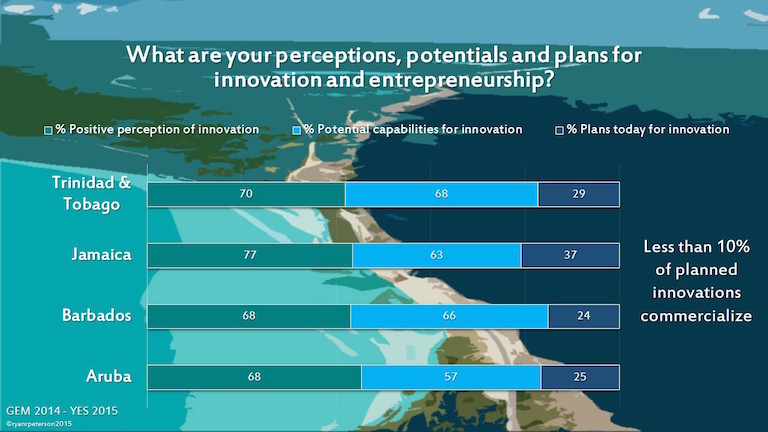By Ryan Peterson
CJ Contributor
Every generation somehow feels that it is at the center of the universe of progress and morals, no matter the size of the universe, especially in ‘smaller universes’ across the Caribbean.
One of the unequivocal universalities of human evolution over the past centuries has been a sustainable fallacy of generational supremacy, or as George Orwell put it: “Every generation imagines itself to be more intelligent than the one that went before it, and wiser than the one that comes after it”.
Indeed, every generation seems to think that the next generation is different from its own.
Often, younger generations look down upon the older generation perceiving them as ‘slow’, ‘old-fashion’ or ‘conservative’.
Even more often, the older generation looks down upon the youth in dismay for ‘laziness’ or ‘loss of morals’, often infused and confused with (media-rich) realities of increasing drop-outs, drug-usage, delinquency, and dismal employment.
This negative stigma of “the youth of today” dominates most of our (global and regional) societies and social habits (of the mind and spirit).
Yet, when we turn towards the youth of today, and inquire about their own thoughts and personal beliefs on these and other matters, a slightly different picture emerges.
Although the region constitutes a wide diversity of islands and identities, and societies and specialties, recent evidence suggests that our ‘perceived realities’ are more complex and dynamic than previously assumed. And interestingly enough, we share more than the ocean in the Caribbean.
When asked to what extent they think their generation (between 15 and 30 years) is different from previous (older) generations, four of every five thought that they were somewhat to very different from previous generations. On average, only 21 percent saw their own (youth) generation as similar to previous generations.
More specifically, the youth of today view their generation, in comparison to previous generations, as having more innovative ideas (68 percent), getting a higher education degree (67 percent), using renewable energy (66 percent), starting a new business (57 percent), getting better paying jobs (55 percent), and being happier in life (52 percent).
Compared to previous generations, they are relatively less likely to work in government (43 percent) or trust political leaders (59 percent), and are relatively more likely to seek new ventures and establish their own business. Nevertheless, while the Caribbean shares a relatively high positive perception of, and potential for innovation (well over 60 percent), it falls short when it comes to crystalizing plans for innovation and new venture creation (less than 30 percent).
While these inter-generational differences are by no means surprising or really new, the evidence suggest that there may be a ‘silent divide’ within the youth generation regarding ecology and community. In terms of intra-generational differences, one third indicate that the youth is relatively less likely to protect and preserve nature (34 percent), reduce waste and pollution (31 percent), volunteer in community activities (34 percent), and lead healthier lifestyles (37 percent), in comparison to previous generations.
Thus, while the youth seem optimistic about their personal economic livelihoods, they are cautious about the social and environmental habits of their own generation.
The potential opportunities for enhancing economic resilience and transforming the business landscape by means of social innovation and eco-preneurship are thus beyond our current Caribbean imagination.
Without a doubt, there is certainly a spirit of creativity and innovation within and across our generation of youth. Yet, more than simply improving and diversifying access to (financial and human) capital and streamlining start-up protocols, this youth generation of innovation is ‘silently’ in search of imagination, innovation and incubation in our (formal and informal) educational systems of entrepreneurial learning and personal development, transformative leadership and professional mentorship.
In order to cultivate and capitalize on next-generation value innovations, let us be that generation that imagines itself to be more intelligent than the previous, and enlighten the next generation so that they may go beyond their potentialities…
Ryan Peterson, PhD is Professor of Innovation Economics & Sustainable Islands at the University of Aruba, and policy advisor on Caribbean innovation and smart island sustainability. He can be reached atryan.peterson@ua.aw.


